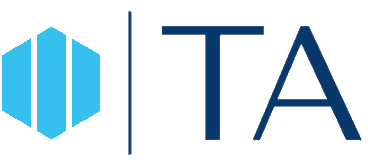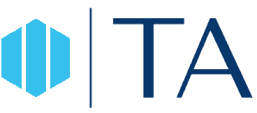Jacqueline Kennedy Onassis has carefully preserved the memory of her husband after his assassination, reinterpreting President John F. Kennedy as the fallen King Arthur in modern-day Camelot. Now, some historians are wondering if Lauren Powell Jobs is trying to create the legacy of her late husband Steve Jobs, a complex and transformative figure, overshadowed by her father's failures and her militant attitude as a boss .
Last month, Powell Jobs released the Steve Jobs archive. He intends to reinvent his personal archives, rework music on the iPod, and connect it to the iPhone, the same way Jobs did when he ran Apple.
Powell Jobs, who did not respond to requests for comment instead of providing a repository of personal correspondence, notes, and items for public investigation and investigation, as had been done by other influential figures, said at a meeting last month by the archives: Steve Jobs will be dedicated to the "idea". These thoughts are primarily Jobs' philosophy of life and work.
As a result, it's more of a tribute website than an archive for now. In an interview with The New York Times, more than a dozen archivists and scholars questioned even calling it an archive. This has worried historians who fear that they can inspire other wealthy and powerful individuals who curate their historical records in the same way that ordinary people curate their lives on Instagram.
Martin Luther King Jr. "One of the things I admire about archives is the mantis," said Courtney Chartier, archivist at Columbia University, who worked with the archives and playwright Tony Kushner's paper. "People are complex and we shouldn't avoid it."
Steve Jobs Archives are different from the repositories of most prominent business leaders who have left material in most corporate or library archives. About half of Harvard Business School's 25 greatest business leaders of the 20th century have opened their personal archives to libraries or museums, including Coca-Cola founders Henry Ford, Thomas Edison, and Asa Candler.
Other iconic business founders, such as Walt Disney, Sam Walton, and Ray Kroc, entrusted their thesis to their companies and made these collections the cornerstones of corporate archives.
Most of these corporate archives are not open to the public, but some companies, such as the Walt Disney Company, provide authors with personal correspondence, notes, speeches, and other research materials.
"We don't censor," said Becky Klein, director of the Walt Disney Archives. "We're just checking."
The New Jobs Archive debuted as a minimalist website with eight videos, audio and text from the archive that "express Mr. Jobs' motives in his own words". Three-quarters of the already published entries can be accessed by clicking on the sayings that Jobs made famous, including "Do a great job and publish it" and "Go your way."
The next step in the archive is shrouded in mystery about how Jobs ran Apple. What was revealed was that Powell Jobs hired a documentary filmmaker to collect hundreds of oral stories about Jobs from his former colleagues. Where these materials are stored and who has access to them are not reported.
In an interview, archivist Leslie Berlin declined to comment on whether the collection would be open to researchers or would contain controversial material about Jobs. Writer Walter Isaacson, who interviewed Jobs for more than 40 years before writing his best-selling book, said in an email that he knew very little about the archive and declined to comment further.
Powell Jobs was the driving force behind this project. She married Jobs in 1991, two years after they met at Stanford graduate school. After his death, she owned the Atlantic magazine and financed the Emerson Collective, a charitable and commercial organization that funds an organization that works to reduce gun violence in Chicago.
Throughout his life, Jobs admired historians and called for preserving the history of Silicon Valley predecessors such as Robert Noyce, co-founder of chipmaker Intel. However, he paid little attention to his history, and Apple rarely celebrates his product anniversary, arguing that it focuses on the future rather than the past.
When Jobs returned to Apple in 1997, 12 years after being fired, one of the first steps he took was to provide the company's corporate archives to Stanford University, said Henry Loud, the university's science and technology history curator. Stanford Library.. Collection. Within 24 hours, Stanford was able to move approximately 800 boxes from the company campus to the university, with signed documents from Apple's legal department.
Stanford is barefoot at work. I've spent years cataloging things like Jobs' photos, advertising campaigns, and Apple II computers. This resource can be used by students and researchers who want to know more about the company.
Silicon Valley leaders have a tradition of leaving material at Stanford. Here is a collection of letters, slides and notes from William Hewlett, founder of Hewlett-Packard, and Andy Grove, former CEO of Intel.
Lowood said he is using the Silicon Valley archives to teach students the value of discovery. "Unlike a book, which is a true gospel, the combination of materials in the box brings uncertainty," he said.
After Jobs' death in 2011, the author Isaacson published a biography of Jobs. Some at Apple complained that the best-selling book misrepresented Jobs and commercialized his death.
Mr. Isaacson declined to comment on these complaints.
Four years later, a movie was made based on the book. Written by Aaron Sorkin and starring Michael Fassbender, the 2015 film focused on Jobs' expulsion from Apple and his eldest daughter's denial of paternity.
According to an email released after Sony Pictures, which owns the rights to the film, was hacked, Powell Jobs lobbied the film to be discontinued. She and those around Jobs believed that any film based on the book would be inaccurate.
"I was angry and he was my friend," said Mike Slade, Chief Marketing Officer, Jobs' advisor from 1998 to 2004. “I can’t imagine how angry Lauren was.”
In November 2015, a month after the film's release, Powell Jobs asked representatives to register the Steve Jobs Archives as a Delaware and California Limited Company. She later hired documentary filmmaker Davis Guggenheim to collect oral stories about Jobs from her former colleagues and friends. She is also the historian of the Stanford Project for Apple Archives, Ms. We hired Berlin as Managing Director of the Jobs Archive.
While working on a Netflix documentary about Bill Gates, Inside Bill's Brain, Guggenheim said Mr. I was collecting data about Jobs. Slade, who worked for both Jobs and Gates, said he sat down to interview one executive, then paused for a change and then returned to discuss the other.
While working on the Netflix documentary "In Bill's Mind" about Bill Gates, the Guggenheim had Mr. I said I was collecting data about Jobs. Slade, who worked for both Jobs and Gates, said he sat down to interview one executive, paused for a change, and then returned to discuss another.
The resulting archive website opens with an email Jobs sent to him from Apple. From the food you eat to the music you like, it's like a diary that contains everything you depend on others.
"I love and respect my race, living and dead, and my life and well-being depend entirely upon them," he wrote.
The
letter is followed by a previously unknown audio clip of Jobs interviewing Michael Moritz, a journalist who turned Sequoia into a venture capitalist, in 1984. Along the way, Jobs said, improvement comes from banal mistakes that reflect the way Apple used trial and error in developing its devices.
Moritz said of the recording, "He was lying in a drawer collecting dust."
To those who contributed
material, it is clear that the archive is intended to preserve Mr. Jobs' legacy. This is a goal supported by many.
"There are too many distortions of who Steve is," McKenna said.




0 Comments